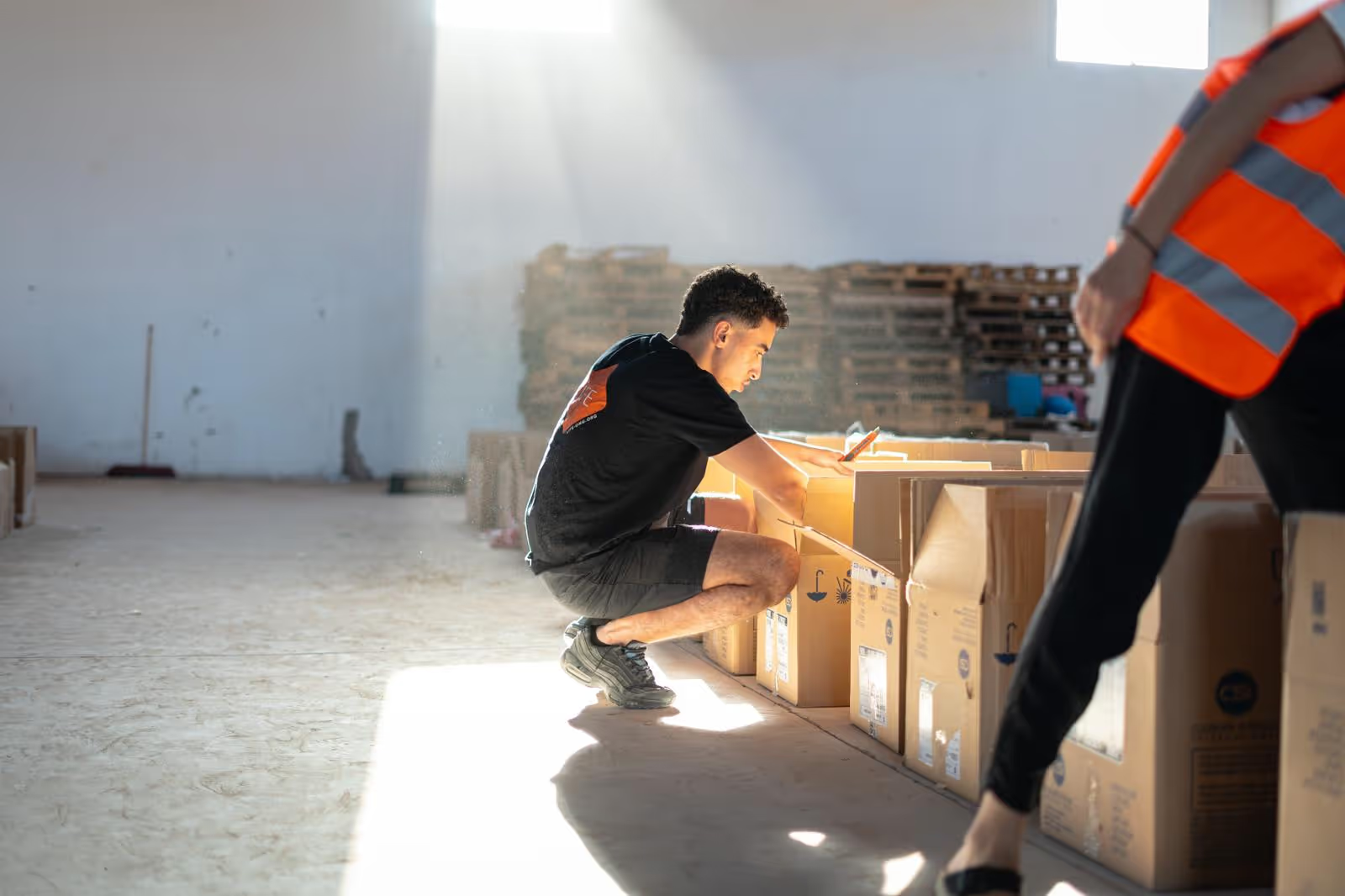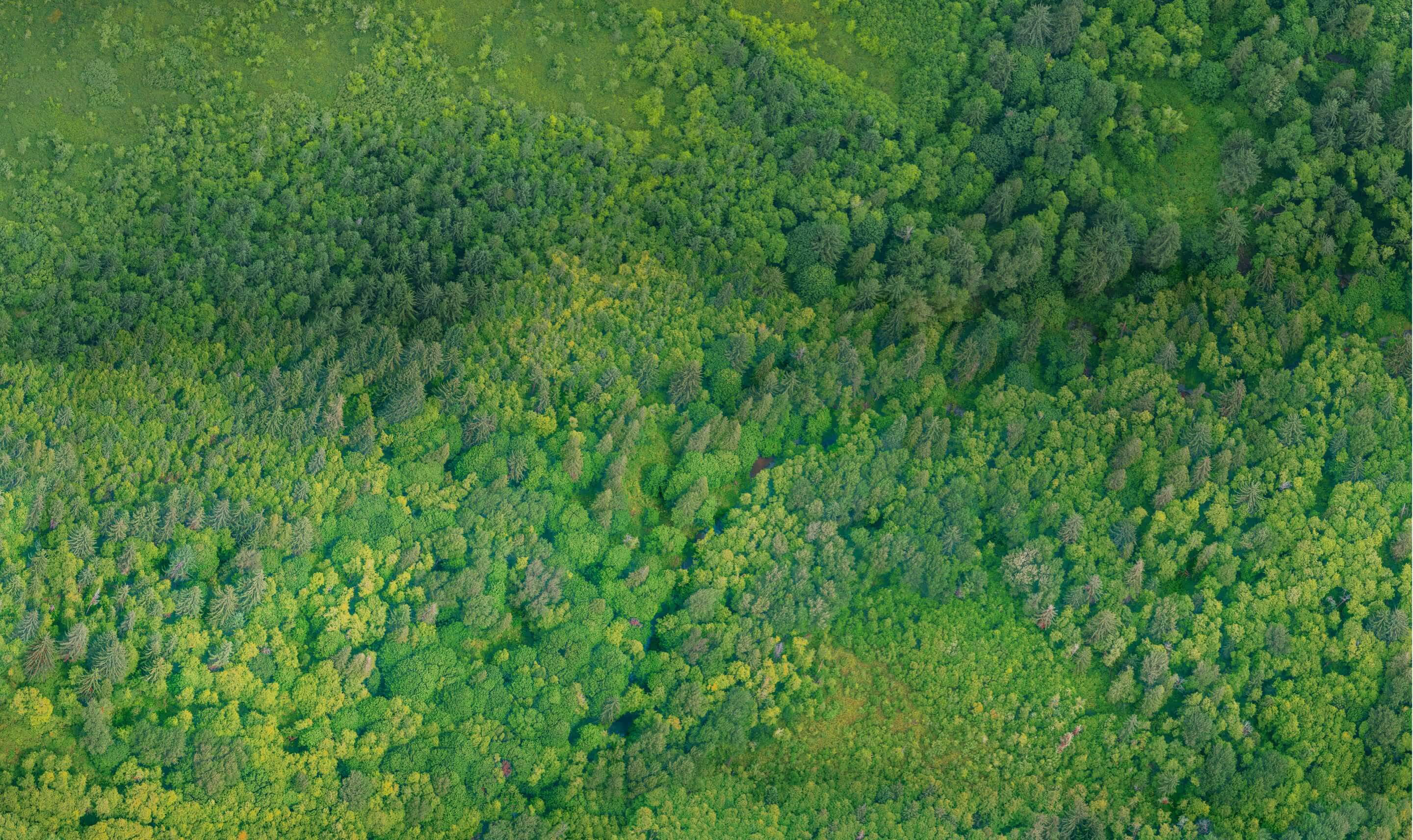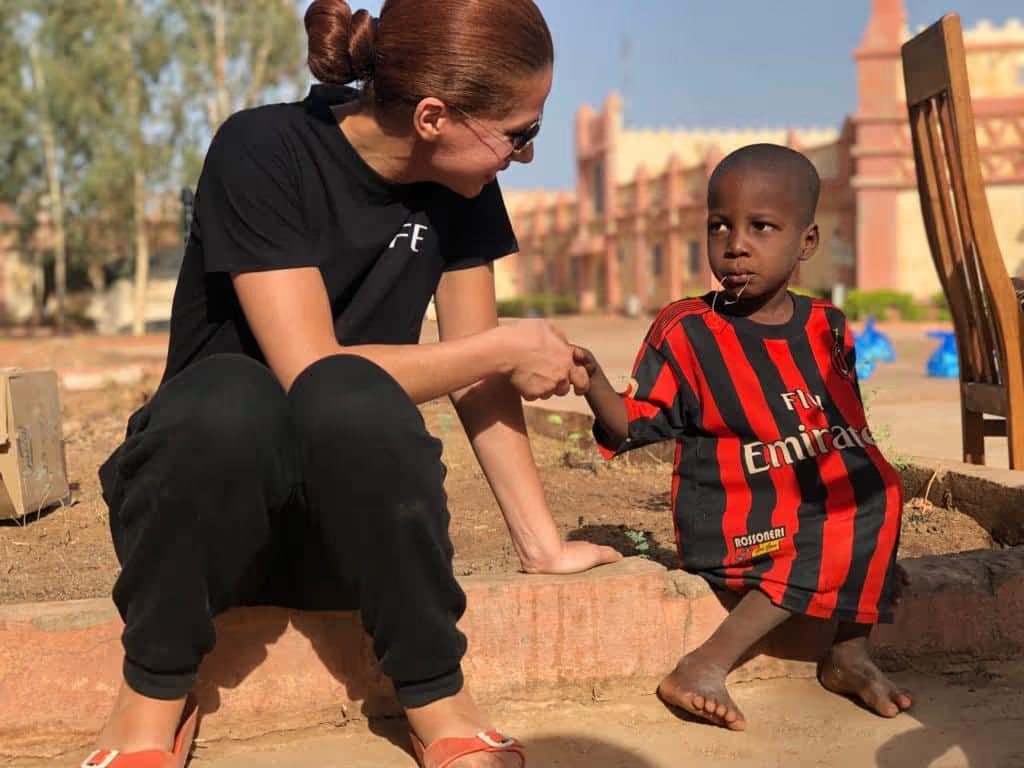The impact of climate change on women
.avif)
Climate change affects everyone. But not all of us are impacted in the same way. Girls and women are much more so, especially in developing countries. The UN estimates that 158 million of them are plunging into poverty as a direct result of climate change; a figure of 16 million higher than that of men and boys. But far from being simple victims of this crisis, women are also at the heart of the solution. What are the new challenges they are facing? How does this context pave the way for empowerment for them?
Women's health at risk
Air pollution, warming temperatures and natural disasters increase health risks, especially that of women. Pregnant women are at risk, with potential complications such as premature births during heatwaves. But beyond the physiological differences with men that make them more fragile, we will see that social roles expose them more to exhaustion and malnutrition.
Search for water, wood, food
Indeed, in many countries, for example, they are responsible for collecting water and firewood. When these natural resources become scarcer due to drought or floods, they have to deal with more and more kilometers every day. Their workload and the specter of exhaustion are increasing. In addition, they are more exposed to the risk of physical or sexual violence. According to the UN, by 2025, 1.8 billion people will live in areas with complete water shortages...
At LIFE, with our OASIS projects we are building castles and drinking water wells in numerous communities in Africa and Asia. Their proximity allows girls to return to school and women to focus on income-generating activities. These projects pave the way for their empowerment.

During extreme weather events, such as cyclones, droughts, droughts, floods, storms, etc., women, especially those living in rural areas, are more at risk. Again, their vulnerability can be explained by restrictive social norms and reduced mobility. For example, During the 2004 tsunami in Asia, 4 times more women than men have lost their lives in Sri Lanka. Many chose to stay to help their children or loved ones, or did not know how to swim...
At the heart of food production, and yet...
In many rural communities, women are at the heart of food production, primarily through subsistence farming. They play a central role in food security and represent up to half of producers in developing countries. However, they are among the most affected by hunger and the least paid for their agricultural work. Despite their essential contribution, they have limited access to resources, and in the poorest countries, only 13% of them own the land they farm.
Extreme weather events and soil degradation compromise crops, causing food shortages. The resulting malnutrition particularly affects them, as they often deprive themselves of priority to feed their children or families.

Inequality in access to medical care
Women, especially in rural or poor areas, often have limited access to quality health care. Poverty, cultural barriers, gender discrimination, and sometimes economic dependence on men are the causes. During extreme weather events, health infrastructures are often overwhelmed or damaged, and women, who are already disadvantaged in terms of access to care, suffer the consequences.

Climate change and girls' education
When families face economic crises due to extreme weather events, girls are often removed from school to help provide for the household. According to A study published in the journal International Social Work, climate disasters increase the risk of early marriages. Indeed, families see this as a way to reduce economic pressure, which perpetuates a cycle of poverty and vulnerability.
However, women have a key role to play in climate action. For this, it is crucial to promote their education and empowerment around the world. Education provides them with the skills to understand, address climate challenges in an informed and proactive manner and to influence policies and lead local initiatives.
In Cameroon, women's organizations, gender experts and policy makers have developed a national strategy to integrate a gender perspective in reducing emissions from deforestation (REDD+). This project trained women in forest management, launched pilot projects led by them, and strengthened their representation in decision-making processes.

Women, guardians of the environment, drivers of change
Despite their vulnerability to climate change, women play a crucial role in terms of resilience. In many regions, they are key players in sustainable development, in the preservation of natural resources and in the promotion of biodiversity. Their in-depth knowledge of the ecosystems in which they live and their experience in managing natural resources make them effective leaders in adaptation initiatives. They hold essential ancestral and experimental knowledge.

Projects like Saathi and Poder y Luz Maya initiated by UNESCO have understood this well. They ensure the full participation of women, and use their expertise to develop innovative solutions. Their aim is to contribute to their empowerment while meeting environmental challenges.
The Saathi Project in India, launched in 2015, aims to produce 100% biodegradable sanitary pads from banana fibers, a local agricultural waste. In addition to promoting the circular economy, it improves waste management, generates additional income for farmers, and empowers women in disadvantaged communities through employment. In collaboration with NGOs, Saathi has educated thousands of women and girls in rural areas about menstrual hygiene and reduced plastic waste, while fighting CO2 emissions.
The Poder y Luz Maya Project provides climate-friendly solutions, such as solar systems and water filters in rural communities in the Western Highlands in guatemala. Women receive training in solar technologies, which reinforces their role in the energy transition and sustainable development.
In Kenya, in the Green Belt movement, founded by Wangari Maathai, women are the leaders in reforestation and conservation. They plant trees to fight deforestation, restore ecosystems, and improve local livelihoods. This movement has enabled thousands of them to become guardians of the environment, while strengthening their economic and social autonomy through nursery management and environmental education.
Women are inspiring role models of resilience. By recognizing and supporting their role in climate initiatives, we can accelerate progress towards a more sustainable future.
Strengthening women's participation in climate policies
The growing recognition of the role of women in the fight against climate change is reflected in an increase in their presence in international climate negotiations and environmental policies. They are still largely absent from decision-making positions in this sector. At COP28, out of the 133 world leaders present, only 15 were women!
Women leaders, whether elected, activist or scientific, bring unique perspectives and innovative solutions to climate challenges. By supporting them, we promote fairer and more effective policies.
Did you know: only 1% of climate change funding is given to organizations led by women around the world.

The impact of climate change on women calls for a global and inclusive response. By investing in their education, supporting their leadership, and integrating their perspectives, we are promoting gender equality and more effective climate solutions. Thanks to them, the climate crisis can be an opportunity to build a sustainable and equitable future.
Together, let's give hope and a future to girls and women around the world.



.avif)



.webp)

